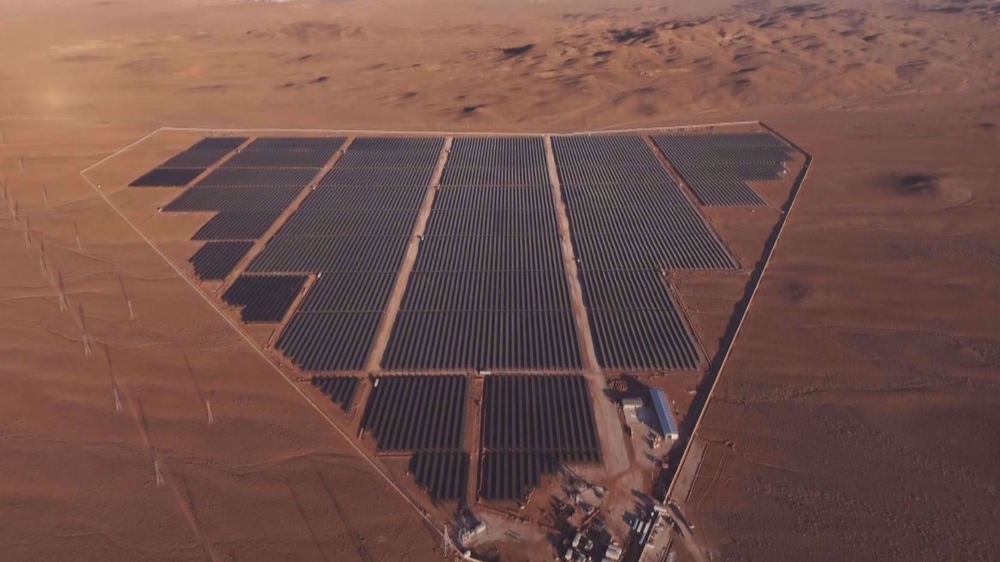Yemen prioritizing plans to reach self-sufficient status
Yousef Mawry
Press TV, Sana'a
Yemen is on the road to achieving self-sufficiency with government plans and strategies aimed at doubling and expanding Yemeni agriculture and local food production.
On this trip to a Yemeni farmland, I am accompanied by Wajih al-Mutawakel, the man in charge of vegetable production in Yemen. Al-Mutawakel is one of the government officials leading the campaign to revive Yemen's rich agriculture.
He’s here to show us some of the agricultural projects the government is funding.
We are on the outskirts of the Yemeni capital where Yemen’s agricultural renaissance is beginning to take place. Here, farmers are planting, garlic, onions, barley, and wheat because these crops are vital to keeping Yemen’s economy afloat and putting food in the mouth of Yemenis in the midst of a blockade imposed by Saudi Arabia.
One of the ways to counter food shortage in Yemen is through the launch of water-based greenhouse projects.
Cucumbers, tomatoes, and onions ripen in only 30-45 days, which means more food for Yemenis at affordable prices.
Outside of these greenhouse is an even more vital crop being harvested in acres of land that stretch beyond the horizon. Yemeni wheat. According to the Ministry of Agriculture, Yemen imports an estimated 4 million tons of wheat a year from foreign countries.
To achieve self-sufficiency status, Yemen must produce its own wheat in order to eliminate its dependence on foreign imports.
Farmers on the outskirts of Yemen's capital are answering the call to produce more wheat.
As food production increases, many organizations have been formed to help achieve food security. Qiwan Foundation for Development and Agriculture is one of them.
Qiwan Foundation educates Yemenis on the importance of helping the advance of the nation through agricultural initiatives.
Qiwan also specializes in the production of basic foods from a combination of Yemeni seeds and grains at their local factory. They have even started their own brand of flower and healthy snacks sold in and out of the country.
Qiwan's President believes that Yemen's high-quality agriculture must be revived in order to provide healthy food options for Yemenis and to eradicate some of the diseases caused by imported foods.
After the revolution of September 21 in 2014, achieving self-sufficiency in Yemen is no longer an impossible task. According to Yemen’s Ministry of Agriculture, if local food production continues to increase Yemen could reach food security in just a few years.
The revolution against Western hegemony in Yemen serves as a starting point towards achieving self-sufficiency, which according to the Ansarullah leader Sayyid Abdulmalik al-Houthi is essential to securing food provisions for Yemenis.
UN experts condemn US blockade of Venezuela
Iran stocks extend rally as TSE index surpasses 4 million points
Rights group reports worsening humanitarian conditions in Israeli prisons
EU slams US over visa ban on officials regulating 'online censorship rules'
Iran welcomes deal between Yemen’s sides to swap nearly 3,000 prisoners
Diplomacy does not entail sending bombers, Iran’s foreign minister tells US
Israel approves 126 illegal units in West Bank settlement evacuated in 2005
VIDEO | Press TV 's news headlines









 This makes it easy to access the Press TV website
This makes it easy to access the Press TV website